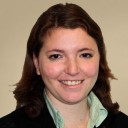It is difficult to disentangle one of Europe’s most perplexing challenges in just 90 minutes. Yet the EuroPhilantopics session on ‘changing the narrative on migration’ held on 5 November in Brussels set out to do just that.
Set against the context of a debate the previous evening that I had the misfortune to miss, the session addressed the so-called ‘toxic’ debate on immigration in Europe. This highly mediatized debate not only touches on the fundamental values of the European Union but also links to a wider debate about the adequacy of our democratic institutions to address fears exacerbated by austerity and recession.
This is not a new debate for the philanthropy sector. Foundations have long supported causes such as building evidence on racism and xenophobia, giving migrants a voice, and raising awareness about the plight and needs of migrants. This support has been much needed and has often filled a gap that the public and private sectors have not been able to address.
All this important work undertaken over the last decades now comes under threat as Europe reaches a critical juncture. Fragmented actions or Victorian-style philanthropy will not help achieve the needed endeavour to reach the public and make a marked difference in the lives of migrants and European society. As one participant of the session pointed out, ‘business as usual’ for foundations will not do.
The EuroPhilantopics conference was surrounded by symbolic events that demonstrate that change is not only possible but attainable. November commemorates a series of historical European events such as the fall of the Berlin wall 25 years ago and the beginning of World War I 100 years ago. Just months earlier, in the same venue as EuroPhilantopics, Obama delivered a speech signalling how far the world, and in particular Europe, had gone from the trenches of Flanders and the Iron Curtain to today’s democratic union.
If less than 50 years after one of the most atrocious wars divided and destroyed parts of European society, we were able to build a peaceful union with common borders, free trade and movement of people and a common currency – albeit that controversy still surrounds these achievements – does it not seem feasible that the current toxic discourse on immigration can also be shifted?
At the end of the day, this is a particular point in time in a wider historical context that has seen many fluctuations of public opinions and realities. Had this session been held 26 years ago, how many would have bet on an end of the Cold War?
A brief film shown by Marc Richir from the Directorate General for Home Affairs of the European Commission entitled ‘Break the Circle’ beautifully illustrates this point.
So if my positive assessment of historical opportunity can be accepted, what can foundations do about it?
First of all, leave behind small expectations and start thinking big. In order to effect change, foundations need to look for ways to influence political leadership and put facts in the mouths of people whose views matter and shape opinion. Foundations have this leverage and, collectively, can reach critical mass to achieve change.
In order to do so, the perennial obstacles will need to be overcome. Fear of controversy and differences in working cultures need to give way to more cooperation among foundations. As Heather Grabbe from Open Society European Policy Institute suggested, by working together, foundations can become less risk adverse, learn more, and spread the risk of getting involved in controversial discussions.
This has already been the case in some platforms such as EPIM, Ariadne and the Changing Minds initiative in the UK.
It is time for the sector to take leadership on this issue. If foundations shy away from this responsibility, there may not be too many other players ready or able to take on this role and the pessimistic outlook of a hostile and disenfranchised Europe could become a reality.
Ana Feder is policy adviser for social affairs at EUROCITIES. The views represented in the blog are those of the author and not of the organization.



Comments (0)